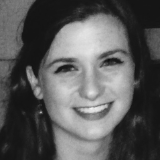Margin Notes: Independence Revisited
By Rachael AllenIn my first column for this newspaper, I wrote about “independence.” Having just completed my freshman year, I saw college as independence: you lived in a dorm, made new friends, learned to adjust to a new environment, spoke a little louder in class. I was worried that I would lose the confidence that I had grown to feel in that first year of college once I returned home. Without the context of college, would I lose the self I was becoming while living there?
 Three years later, I know that no, of course you don’t lose your sense of self in the transition between environments, or the way I viewed it then, as the transition between homes: my home in Canton and my home at college. The experiences you have in each place just build up and remain with you in some form or another. In this regard, I’m not afraid of losing much when I leave college. I know I will carry what I have learned and experienced at this place with me. I probably yet don’t know all the ways that I will carry these connections with me. (As I was writing this sentence, my mom texted me that her car tire had a nail stuck in it and the mechanic who fixed it grew up only a few towns over from my college. A poetic coincidence that a Mainer was fixing my mom’s tire — moreover, for free — so she could drive up to Maine for my graduation.)
Three years later, I know that no, of course you don’t lose your sense of self in the transition between environments, or the way I viewed it then, as the transition between homes: my home in Canton and my home at college. The experiences you have in each place just build up and remain with you in some form or another. In this regard, I’m not afraid of losing much when I leave college. I know I will carry what I have learned and experienced at this place with me. I probably yet don’t know all the ways that I will carry these connections with me. (As I was writing this sentence, my mom texted me that her car tire had a nail stuck in it and the mechanic who fixed it grew up only a few towns over from my college. A poetic coincidence that a Mainer was fixing my mom’s tire — moreover, for free — so she could drive up to Maine for my graduation.)
And so, I’m not as afraid of losing myself when I leave college for good as I was freshman year. Instead, I am sad to leave the comfort and happiness of the support system I have found here. Independence, as I thought when writing that first column, is about finding more things to depend on. I have certainly done that here; I depend on the schedule of classes, schoolwork, friends, (low-key) nature adventures, weekend routines. I’ve come to depend on the weirdness of coincidences: my school is too small for one to get by without a number of strange connections to people in our grade.
The interconnectedness of the people at my college and, moreover, of my daily routines with my friends’ can sometimes be too much. My best friend and I, for example, eat dinner together nearly every night, go to bed at the same time, study in the same spot in the library, and occasionally exit our adjacent rooms in the morning wearing similar outfits. We’ve talked a lot about how much we are together; we wrote a joint personal essay about it for our school newspaper, highlighting the fact we came into college already best friends because we attended the same high school. It’s sometimes difficult to feel that we’re forging individual identities, we noted, because we’re together so much and have made friendships as a pair.
This familiarity has been one of the best parts of my college experience, but, at the same time, this dependency will have to dissolve once we leave, hopefully for the better. If life after college is “the real world,” as the cliché goes, then I’ve definitely been living in an unreal world. Here, my work is to read and write about the books that I read. I get to see my friends every day. We are never too busy for each other; if we are, we need only wait another day for someone to finish an essay or turn in a lab report and then we’re free to hang out and do nothing. If I am sick, I have to walk less than five minutes across campus to the health center. I don’t ever have to cook. And I have spent the past week quite literally playing games — sliding down water slides, having jumping contests at the beach, going to an “escape room,” eating ice cream.
Granted, this list of college’s support paints a pretty picture. Above all, as students we are paying for these services, so in this regard, college is the most “real world” kind of transaction. And, admittedly, the support systems don’t always work out as nicely as we’d like them to, nor as equally for all students. The ideal, however, remains: a place set up that allows students to learn and grow as people. We are all on the same basic wavelength of growing up at the same time. This parallel mindset is perhaps what I’ll miss the most. And this parallel mindset, too, is indicative of just how much college hasn’t felt like independence at all but, thankfully, the opposite.
Rachael Allen is a lifelong Canton resident and a 2018 graduate of Bowdoin College. The recipient of several writing awards, she served as the managing editor for Bowdoin’s student newspaper, the Orient.
Short URL: https://www.thecantoncitizen.com/?p=39024










